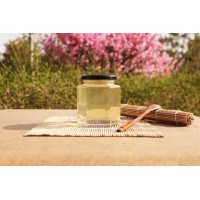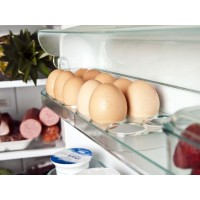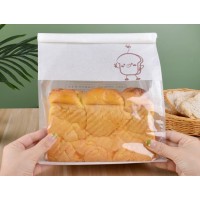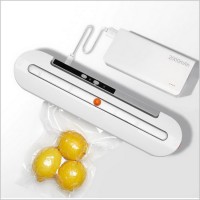How To Store Opened Milk Powder?
- 25.10.2024
- ling
- 0 reviews
How to store milk powder
The common milk powder on the market is vacuum bag and canned milk powder, which cannot be drunk at one time after being opened, so it should be stored properly.
Store at room temperature
How to store:
Milk powder is very susceptible to agglomerates when wet, so it should be kept in a cool, dry place.
Seal the opened milk powder in a sealed bag.
Shelf life
If it is not opened, look at the shelf life of the package, and the general shelf life after opening is 1 month.
Keep refrigerated
It is not suitable for refrigeration, the refrigerator is a closed low temperature and humid environment, and the milk powder is easy to be damp, agglomerated and deteriorated in the refrigerator, which will affect the drinking effect.
key points
Do not put it in the refrigerator, it is easily damp, it should be kept in a dry and cool place
The shelf life after opening is about one month
1. Importance and time frame
If the milk powder is not stored properly, it can have many undesirable consequences.
First of all, the nutritional value of milk powder will be greatly reduced. Milk powder is rich in nutrients such as protein, fat, vitamins and minerals, which are gradually lost when opened and exposed to air, moisture and light. For example, vitamin B1 and vitamin C are most lost during storage, and factors such as light and temperature can cause their loss; At the same time, components that are more sensitive to light sources, such as riboflavin, will also cause significant losses after exposure to light.
Secondly, spoiled milk powder can seriously affect the baby's health. Spoiled milk powder may contain spoiled proteins and fats, and the baby's digestive system needs to consume more energy to break down these substances, which can easily cause diarrhea, vomiting, stomach pain and other digestive discomfort symptoms. If the milk powder is contaminated by bacteria and produces toxic substances, the baby may have poisoning symptoms after ingestion, such as nausea, vomiting, diarrhea, headache, etc., and may even be life-threatening in severe cases.
Generally speaking, milk powder should be used up within one month after opening, because the milk powder after opening is prone to moisture and spoilage. After the milk powder is opened, the chance of contact with air is greatly increased, and oxidation reactions are easy to occur, such as the contact between the fat in the milk powder and oxygen will produce a special smell after the fat is defeated, resulting in the abnormal flavor of the milk powder. At the same time, lactose easily absorbs water to form lactose crystals, which makes the milk powder agglomerate. In addition, milk powder is also prone to a large number of bacteria after contact with air, causing milk powder to deteriorate. In order to ensure that the milk powder that your baby eats is fresh and nutritious, it is recommended to consume it within a month and store it in a cool, dry place away from direct sunlight. If you find that the milk powder has clumping, discoloration, odor, etc., you should stop using it immediately.
2. The specific preservation method
(1) Storage environment
The environment in which the milk powder is stored is crucial. It should be kept indoors in a dark, dry and cool place, away from direct sunlight, because the ultraviolet rays in the sun will destroy the nutrients in the milk powder, such as vitamins. At the same time, milk powder can not be placed in the refrigerator, although the temperature of the refrigerator is low, but the temperature difference and humidity between the inside and outside of the refrigerator are large, coupled with frequent daily pick-up, milk powder is more likely to absorb moisture in the air and produce the problem of agglomeration and deterioration. It should also not be placed in the kitchen, where a large amount of food is stored, and food spoilage may contaminate the milk powder; It should not be placed near the handwashing station, which is humid and easy to get damp; It should not be placed in a high-temperature environment, which will accelerate the destruction of nutrients and oil oxidation in milk powder.
(2) Key points of operation
Be sure to wash your hands before opening the cans to ensure aseptic operation and reduce bacterial contamination of the milk powder. It should be sealed as soon as possible after opening to prevent spoilage or loss of nutrients due to prolonged storage. If the opened milk powder in the can cannot be fed at one time, the lid of the can should be closed tightly in time to avoid contamination by air and dust.
For preservation, pour the opened milk powder into an airtight bag or other sealable container to keep it dry and sterile. It is best to control the storage temperature between 0 - 10°C, which can effectively delay the rate of deterioration of milk powder.
After scooping the milk powder, the lid should be closed immediately, and the spoon and the milk powder should be stored separately to avoid moisture caused by water vapor when the spoon touches the bottle. Do not pour the extra milk powder back into the can to prevent contamination of other milk powder in the can. Also, don't reuse old cans, even empty cans that have been filled with other items, as old cans may leave other substances behind and can easily lead to cross-contamination. In addition, mark the opening time so that you can clearly know the expiration date of the powder.
(3) Pay attention to deterioration
It is important to learn to tell if milk powder has gone bad. The first thing to look at is the color, fresh milk powder is usually white or slightly yellowish, while spoiled milk powder may appear gray, yellow, or other obvious discoloration. Secondly, distinguish the powder, normal milk powder is fine and scattered, and it feels very soft when touched and pressed with a spoon, while spoiled milk powder often becomes viscous or lumpy. It is also possible to smell the smell, normal milk powder should not have any unpleasant odor, while spoiled milk powder may emit a sour or musty smell. If you notice any of the above spoilage, you should stop using it and contact the manufacturer or doctor for help.
Reviews (0)
Related Articles
How To Preserve Low-temperature Yogurt?
- 20.10.2024
- ling
- 0 reviews
Low-temperature yogurt really needs to be kept fresh. Once it goes bad, it can cause unhealthy phenomena for consumers. Now let's introduce how to store low-temperature yogurt.
Read More10 Honey Storage Tips: Keeping Your Honey Sweet and Fresh
- 23.10.2024
- ling
- 0 reviews
To store honey correctly to prevent spoilage and maintain its quality, you could follow tips:sealed storage by proper lid sealing,cool and ventilated storage avoiding light and sunlight,container material considerations avoiding metal containers,refrigerator storage
Read MoreHow To Keep Eggs Fresh For A Long Time? Egg Preservation Skills
- 23.10.2024
- ling
- 0 reviews
Eggs can generally be stored for 10-15 days at room temperature,to keep eggs fresh for a long time, egg preservation skills could help you: refrigerated, store in a dry and cool place,misunderstanding and correct cognition
Read MoreHow To Preserve Bread? 3 Correct Ways To Store It
- 25.10.2024
- ling
- 0 reviews
Bread Preservation: Soft bread should be stored at room temperature in a sealed bag and eaten within two days,or wrap it in a plastic bag and store it at room temperature, which can be stored for three days.Cryopreservation
Read MoreRelated Products
QHS02 Rechargeable Portable Food Vacuum Packing Machine
Rechargeable Portable Food Vacuum Packing Machine with 10pcs Embossed Vacuum Seal BagsSeries:Recharg..
$22.00
QHS03 Touch Screen Vacuum Packaging Machine
QH-S03 Touch Screen Vacuum Packaging MachineSpec:375*150*70mmMaterial:ABSColor:BlackModel:QHS03Certi..
$32.00
QHS12 Stainless Steel Panel Automatic Food Vacuum Sealing Machine
Popular Stainless Steel Panel Automatic Food Vacuum Sealing MachineSpec:387×140×70mmMaterial:ABS, St..
$32.00
Kitchen Circular Noodle Storage Box Moisture-Proof And Fresh-Keeping Sealed Container
Kitchen Circular Noodle & Grain Storage Box: Moisture-Proof and Fresh-Keeping Sealed ContainerPa..
$0.55









